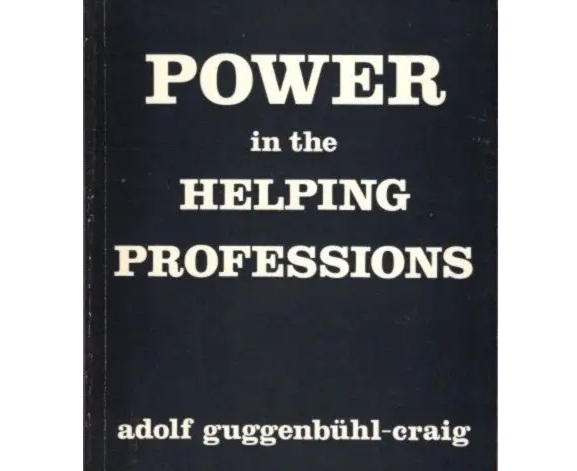
This blog is about psychosynthesis supervision and power in supervision & therapy.
In my recent psychosynthesis supervision training, I presented a case and in response, one of my colleagues mentioned Adolf Guggenbühl-Craig’s Power in the Helping Professions. I picked it up because I wanted to deepen my understanding of the dynamics that shape the supervisor-supervisee, the supervisee-supervisor and supervisee-client relationships. What I discovered is that this book is essential reading for anyone stepping into the role of supervisor – and for anyone stepping into supervision as a supervisee.
Guggenbühl-Craig reminds us that power is always present in the helping professions, whether conscious or unconscious. As supervisors (and therapists), we hold structural and relational power: we set the frame, pace, and tone of a group; we guide discussions; we hold knowledge and experience that the supervisee (often less experienced), looks up to. The book invites us to reflect critically on how that power is expressed. Are we guiding or directing? Speaking first or creating space for others? Interpreting too quickly, or slowing down and creating space to hold curiosity? Are we unconsciously projecting parts of our own shadow – our need to be useful, to know, or to lead – into the room?
For supervisors, this awareness is not just philosophical; it is practical. Supervision is most effective when we support reflective thinking rather than supplying answers, and when we foster an environment where each supervisee can engage their own capacity, wisdom, and will (agency). Power in the Helping Professions helps us see that even subtle lapses in awareness can shape the group dynamic, influence learning, or obscure someone’s voice. It challenges us to hold our power consciously, ethically, and humbly.
At the same time, the book resonates with the experience of being a supervisee. Supervisors are mirrors and containers for our learning, but stepping into supervision also asks us to notice our own power – the capacity to think critically, to reflect, and to engage actively in our professional growth. Awareness of how power operates in the room, can help supervisees claim their voice and take responsibility for their learning.
Ultimately, this book underscores that supervision is not about being a “perfect” leader or a flawless therapist. It’s about conscious presence, reflective practice, and the ongoing work of noticing how power, shadow, and relationship shape every interaction. For anyone who facilitates supervision – or participates in it – Power in the Helping Professions is a vital reminder that our work is relational, and profoundly human.



